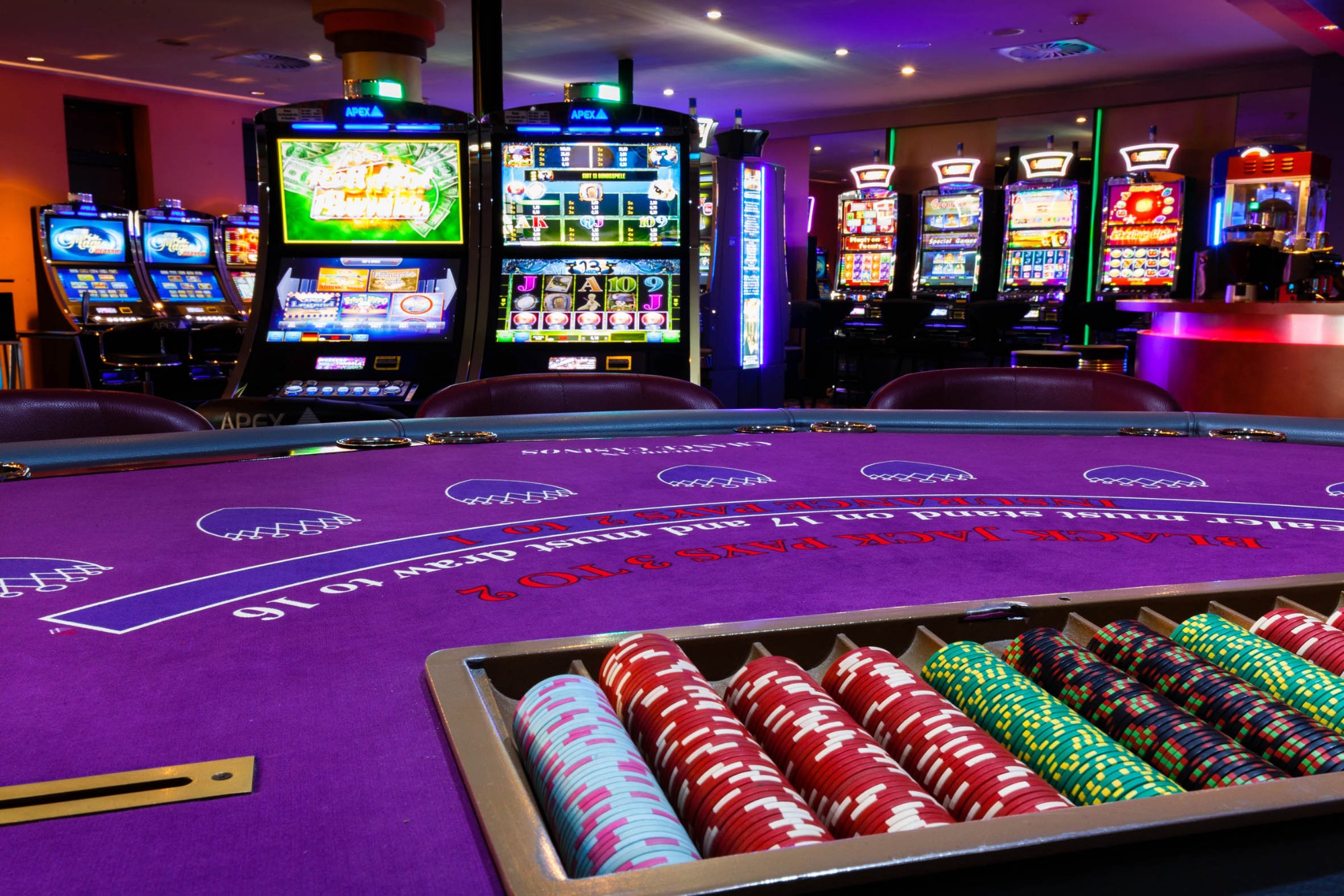Introduction
Can Casinos Not Cash You Out: Casinos are establishments where people come to gamble and potentially win money. It is generally expected that if a player has a winning session, they will be able to cash out their winnings and leave the casino with their money. However, there may be instances where a casino refuses to cash out a player.
While it is relatively rare, there are certain situations where a casino may refuse to pay out winnings. These situations typically involve suspicions of cheating, fraud, or violation of casino rules. For example, if a player is caught using counterfeit chips, engaging in collusion with other players, or manipulating the game in some way, the casino may refuse to cash them out.
Additionally, if a player is found to be underage or has provided false identification, the casino may refuse to pay out their winnings. Casinos have strict age verification procedures to ensure compliance with legal requirements and responsible gambling practices.
It is important to note that reputable and licensed casinos have procedures in place to handle disputes and complaints. If a player believes they have been unjustly denied their winnings, they can escalate the issue to casino management or relevant regulatory authorities for resolution.

Can a casino not pay out?
Can a casino hold winnings? Yes absolutely, and there’s a whole load of reasons why they can decide to refuse to payout. And when they do, the situation can sometimes feel helpless.
In general, reputable and licensed casinos strive to maintain a fair and reliable payout system. However, it is important to note that there have been instances where certain casinos have encountered financial difficulties or engaged in fraudulent practices, leading to delayed or withheld payouts. It is crucial for players to choose reputable and trustworthy casinos to minimize the risk of encountering such situations.
Here are a few factors to consider when selecting a casino to help ensure a reliable payout experience:
1. Licensing and Regulation: Verify that the casino holds a valid license from a reputable regulatory authority. These authorities often have strict requirements in place to ensure fair gameplay and secure financial transactions.
2. Reputation and Reviews: Conduct research to gauge the casino’s reputation. Read reviews from other players and check for any past complaints regarding payout issues. Reputable online casino review websites and player communities can provide valuable insights.
3. Terms and Conditions: Carefully review the casino’s terms and conditions, specifically focusing on their payout policies. Look for transparent information regarding withdrawal processes, payout timeframes, and any associated fees.
4. Payment Options: Check if the casino supports trusted and reliable payment methods. Established payment providers often have their own safeguards in place to protect users and ensure secure transactions.
5. Customer Support: Assess the responsiveness and quality of customer support. Reliable casinos prioritize customer satisfaction and address concerns promptly.
While the vast majority of reputable casinos honor their payout commitments, it’s important to remember that individual experiences may vary. If you encounter issues with a casino refusing to pay out, it is advisable to reach out to their customer support first to address the situation. If the issue remains unresolved, you can consider escalating the matter to relevant regulatory bodies or seeking assistance from gambling authorities in your jurisdiction.
Can casinos refuse to cash out your chips?
Anything that says it is legal tender or that it must be exchanged for cash on demand. Although most casinos will give you the cash equivalent of the value of your chips, they do not really have an obligation to do so (at least not on demand.)
In certain circumstances, casinos may refuse to cash out chips. This typically occurs when there are suspicions of fraudulent activity, counterfeit chips, or if the individual is on a self-exclusion or exclusion list. Casinos have a responsibility to ensure the integrity of their operations and the safety of their patrons, so they may exercise caution when processing chip cash-outs. Additionally, if a player has outstanding debts or markers at the casino, the casino may choose to withhold chip cash-outs until those debts are settled. However, in general, casinos aim to provide a smooth and efficient cash-out process for their customers. It is advisable to familiarize yourself with the specific rules and regulations of the casino you’re visiting to understand their policies regarding chip cash-outs.
Can casinos give you cash?
Generally, if the winnings are $25,000 or less, winners can choose between cash or check. If the winnings are larger, the options may change depending on the location of the casino and the game gambled upon. Some games allow for a lump sum disbursement, where the money is paid upfront.
Yes, physical casinos typically offer cash as a form of payment. When you visit a brick-and-mortar casino and win money, you can usually request your winnings in cash directly from the casino cashier. The cashier will exchange your casino chips or ticket vouchers for cash.
However, it’s important to note that some casinos may have specific limits on the amount of cash they can provide at one time. Additionally, casinos often provide alternative payment options, such as issuing a check or facilitating a wire transfer, for larger winnings or at the player’s request.
It’s advisable to check with the specific casino regarding their cash payout policies and any applicable limits or procedures.
Why don t casinos use cash?
Similarly, casinos use chips to make it easier for them to keep track of how much “cash” they have on hand on the premises. Casino chips are also easier to stack, store and count than cash.
Casinos do use cash as a form of currency for gambling, but they also utilize other methods such as chips, vouchers, and electronic transfers. There are a few reasons why casinos prefer to limit the use of cash:
1. Security: Cash transactions can be more susceptible to theft and fraud. By using alternative forms of payment like chips or vouchers, casinos can enhance security and reduce the risk of theft.
2. Convenience: Using chips or vouchers allows for faster and more efficient transactions at the gaming tables and slot machines. It eliminates the need for dealers or attendants to handle and count cash, speeding up the gameplay.
3. Money Laundering Regulations: Casinos are subject to strict anti-money laundering regulations. By utilizing electronic transfers or traceable forms of payment, it becomes easier for casinos to monitor and report any suspicious financial activities.
4. Gamblers’ Comfort: Using chips or vouchers creates a more immersive and enjoyable gambling experience for players. It helps create a distinct casino atmosphere and separates the gaming activities from regular cash transactions.
While cash is still accepted at casinos, the use of alternative forms of payment provides enhanced security, convenience, and regulatory compliance for both the casino and its patrons.

Why do casinos make so much money?
In each bet, the casino usually has a statistical advantage in which they can make more money. This is called the house edge. The theoretical advantage that the casino holds in a game is what makes the game a gamble. The outcome is unknown and either party has an equal chance of winning at any time.
Casinos make a significant amount of money due to several factors that contribute to their profitability. Here are some key reasons why casinos tend to generate substantial revenue:
1. House Edge: Casinos have a built-in mathematical advantage in their games, commonly known as the “house edge.” The house edge ensures that, over time, the casino will retain a small percentage of the total amount wagered by players. While individual players may win in the short term, the statistical odds favor the casino in the long run, allowing them to generate consistent profits.
2. Game Variety: Casinos offer a wide range of games that cater to different preferences and skill levels. These games include slot machines, table games like blackjack, roulette, poker, baccarat, and more. The variety attracts a diverse customer base, ensuring a steady flow of players and their wagers.
3. Volume of Players: Casinos often operate 24/7, attracting a significant number of players seeking entertainment and the possibility of winning money. The continuous influx of players contributes to the overall revenue generated by the casino.
4. Psychological Factors: Casinos employ various techniques and strategies to enhance the gambling experience and encourage prolonged play. Factors such as attractive ambiance, enticing visuals and sounds, free amenities, and complimentary perks create an immersive environment that keeps players engaged and spending more time and money at the casino.
5. Additional Revenue Streams: Beyond gambling activities, casinos generate income from other sources. These include hotel accommodations, restaurants, bars, entertainment shows, retail shops, and more. Diversifying their revenue streams allows casinos to maximize their earnings and capture a larger share of their patrons’ spending.
6. Marketing and Promotions: Casinos invest significant resources in marketing campaigns and promotions to attract new players and retain existing ones. These efforts include advertising, loyalty programs, VIP rewards, and special events. By effectively marketing their offerings, casinos can increase their customer base and overall revenue.
It’s important to note that while casinos can be highly profitable, not all casinos achieve the same level of success. Factors such as location, competition, operational costs, and management efficiency can influence the profitability of individual casinos.
Are casino chips real money?
Casino Chips Or Real Money: Which Is Handier? – California
When players visit a casino to play, they cash in their real money for chips of equivalent value, which they use to wager at the tables. Similarly, at any time, they can cash in their chips for cash. Casinos brand chips to prevent people from faking them.
Casino chips themselves are not considered legal tender or real money. They are specifically designed for use within the casino environment and hold value only within that context. However, casino chips can be exchanged for real money at the casino cashier or designated redemption areas.
When you purchase casino chips, you are essentially exchanging your money for a specific amount of chips, which represent a monetary value within the casino. You can use these chips to play various casino games, such as blackjack, poker, or roulette. If you win, you can exchange your chips back for cash or receive a voucher that can be redeemed for cash.
The value of the casino chips is determined by the denomination assigned to each chip. Different casinos may use different color schemes and chip denominations, but the principle remains the same – chips represent a specific value that can be redeemed for cash.
It’s important to note that outside of the casino, casino chips do not hold any intrinsic value. They cannot be used as currency for everyday purchases and are specific to the casino establishment in which they were issued.
Can you ask casino for money back?
Of course, anyone can ask for a loss rebate by contacting a casino host; it doesn’t cost anything to inquire. But unless it’s an unusually large loss or there are extremely extenuating circumstances, the typical casino response is to offer a soft comp, such as a meal, room, or show ticket instead of cash.
In general, it is unlikely that you can ask a casino for a refund or get your money back simply because you lost while gambling. When you engage in gambling activities, you do so at your own risk, and the outcome is based on chance or skill, depending on the game.
Casinos operate under the premise that the odds are in their favor, and they generate revenue from the house edge in their games. The money you wager is considered a voluntary contribution to the overall gambling experience, and there is no guarantee of winning or receiving a refund.
However, there may be certain exceptional circumstances where you could request a refund or dispute a transaction. For example:
1. Technical or System Errors: If there is a clear technical glitch or error that affected the outcome of a game or wager, you might have grounds to request a refund. This could include issues with the game software, payment processing, or other system malfunctions.
2. Fraud or Unethical Practices: If you believe that the casino engaged in fraudulent activities or unethical practices that affected the fairness of the game or your ability to make informed decisions, you may consider raising a complaint or seeking assistance from relevant regulatory authorities.
It’s important to note that the specific policies and procedures for addressing complaints or disputes vary among different casinos and jurisdictions. If you believe you have a legitimate reason to request a refund, it is advisable to review the casino’s terms and conditions, contact their customer support, and, if necessary, seek guidance from appropriate regulatory bodies or legal professionals familiar with gambling laws in your jurisdiction.
How much do casinos have to pay out?
In the US, casinos must meet a minimum payout percentage which is set by the gaming authorities in that region. It varies by state but is usually 80% or higher. It’s also true that the payouts vary even within the same game depending on how much you’re betting.
The amount that casinos have to pay out can vary significantly and is influenced by various factors, including the specific games being played, the rules of the games, the payout percentages set by the casino, and the individual outcomes of each game.
Casinos are designed to operate as businesses and, like any business, they aim to generate profits. They do this by offering games with a built-in house edge, which ensures that, over time, the casino will make a profit from players’ wagers. The house edge represents the statistical advantage that the casino has over the players, and it is calculated based on the mathematical probabilities of the games.
However, it’s important to note that individual players can and do win substantial amounts of money from casinos. In fact, large jackpot wins and significant payouts are part of the allure of gambling. While the casino’s overall profitability is based on the collective results of all players, individual wins and losses can vary greatly.
Casinos are regulated by gaming authorities and must adhere to certain regulations and standards to ensure fairness and the proper payout of winnings. The specific payout percentages and requirements vary by jurisdiction, but reputable casinos undergo regular audits and testing to ensure compliance.

Conclusion
While it is uncommon for a casino to refuse to cash out a player, there are instances where it can happen. Casinos have rules and regulations in place to maintain fairness, security, and compliance with legal requirements. If a player is suspected of cheating, violating casino rules, or engaging in fraudulent activities, the casino may refuse to cash them out.
However, it is important to emphasize that reputable and licensed casinos prioritize customer satisfaction and fairness. They have established protocols for handling disputes and complaints, and they strive to ensure that players receive their rightful winnings. If a player feels they have been unjustly denied their cashout, they should follow the proper channels to address the issue, such as contacting casino management or relevant regulatory authorities.
Players can also take proactive measures to avoid potential cashout issues. They should familiarize themselves with the casino’s terms and conditions, adhere to the rules of the games they are playing, and always provide accurate identification and information. By understanding and complying with casino policies, players can help ensure a smooth cashout process and a positive gambling experience.










